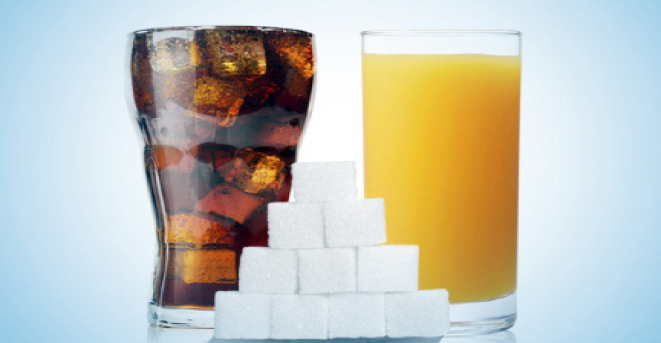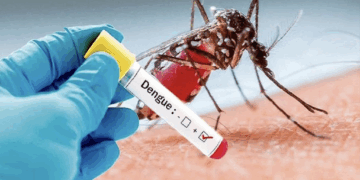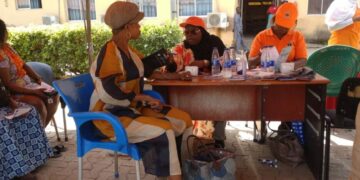Sugar-Sweetened Beverages (SSBs) are among products with negative public health impact. The use of taxes as a way of reducing consumption of such products are considered to have the potential to reduce Non-Communicable Diseases (NCDs) while advancing health equity.
SSBs comprise of any liquid that is sweetened with various forms of added sugars like corn syrup, fructose, glucose, honey, lactose, malt syrup, and sucrose.
They also include carbonated drinks, energy drinks, milk-based drinks, pre-sweetened teas and coffees and juice drinks.
According to the Federal Ministry of Health, these drinks are readily available and have been found to be the leading source of added sugar in the society with Nigeria being the 4th largest consumer of SSBs in the world.
Speaking at the National SSB Tax Coalition’s press briefing recently in Abuja, the executive director, Corporate Accountability and Public Participation Africa (CAPPA), Akinbode Oluwafemi, recalled that in 2021, the federal government imposed a N10/Litre Excise Duty on SSBs.
He said “The tax is principally to help reduce the overconsumption of SSBs which have links to more than 15 types of cancer, obesity, diabetes, and other NCDs. SSBs, popularly called Soft Drinks, have been confirmed by the World Health Organisation (WHO) and other national and international health bodies, to have hard-hitting impact on health, social, economic, and environmental wellbeing of consumers and our communities. The tax covers different categories of sugar-sweetened non-alcoholic beverages and implementation began in June 2022.
“Tax is effective in reducing consumption of SSBs in all the countries of the World where they have been effectively introduced and managed. It has also helped to improve public health indices while also reducing some of the environmental problems caused by the indiscriminate disposal of SSB product packages.”
Akinbode expressed concern over the deliberate misinformation coming from those he said were working tirelessly to undermine the collective well-being of Nigerians through their daily attack on government pro-health initiatives aimed at promoting public health by weaning Nigerians off unhealthy diets, and unhealthy lifestyles.
“While we say that the aim is to reduce overconsumption, we must reiterate that these beverages are non–nutritive and have no use in the body. Hence, can be totally avoided for the good of everyone.
“Interestingly, manufacturers of these unhealthy products through various front and ally groups including the Manufacturers Association of Nigeria, Organised Private Sector, and other Nameless groups have continued to blackmail the government with their heavy media ampaign of misinformation and threat to the federal government.
“They have also constantly attacked civil society groups working to ensure that Nigeria institute effective food policies that will reduce diet-related diseases in the country,” he said.
However, CAPPA called for increment of the tax to 20 percent of the final retail price of SSBs, stressing that the current #10/litre was insignificant and has been absorbed by the industry.
“For the desired impact of reduction in consumption and decrease in NCDs, the tax must be immediately increase to a minimum of 20 percent of the final retail price of SSBs. government must not succumb to the blackmail of the producers of SSBs.
“Instead, the government should begin a legislative process for the sustainability of the tax, that will be adjustable for inflation with provisions on earmarking.
“Government’s role of protecting the populace remains sacrosanct and the current government must honor this social contract with the people.
“The government must ensure that other SSBs not captured in the current tax regime are all included. Government must in good faith begin to account for the taxes collected and a
breakdown of how it has been expended.” he added.
Meanwhile, the federal ministry of health has inaugurated the ad-hoc committee on SSBs Tax to ensure the sustainability and effective implementation of the SSB Tax in the country.
In his opening address at the inaugural meeting recently in Abuja, the director/head, public health department, Federal Ministry of Health, Dr. Chukwuma Anyaike, said the ad-hoc committee ‘will be saddled with the responsibility of addressing excess consumption of SSBs through actualising comprehensive coordinated and sustainable implementation strategies of SSBs tax regime’.
He said the terms of reference of the committee will include but are not limited to ‘working to expand the scope of the SSB tax to include a wide range of sugary drinks, determine most effective option for legislative framework, and to examine the current perceptions of the opportunities and barriers for SSB health taxes.”
Also, the national coordinator for the NCDs division of the ministry noted that the “frequent consumption of SSBs is associated with increased incidence of dental cavities, tooth decay and obesity. Obesity is in turn a risk factor for the development of type 2 diabetes mellitus, heart disease, stroke, and hypertension, SSB consumption has also been linked to some forms of cancer.”
Partners at the meeting praised the Federal Ministry of Health for moving forward in the fight against NCDs using the instrumentality of the tax as they fight back the blackmail and threat of SSB industry players.





